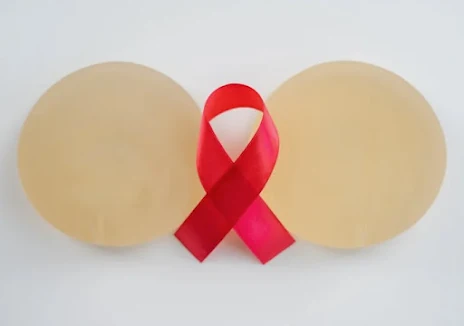Acupuncture provides
many advantages for people recovering after mastectomy, such as pain
management, decreased anxiety, and enhanced general quality of life. Let's
discuss the symptoms that post-mastectomy patients face, the advantages and
safety measures of acupuncture treatment, the particular acupuncture sites that
are employed, and pertinent information from the standpoint of Traditional
Chinese Medicine.
TCM viewpoint on care following a mastectomy
From the perspective of TCM, disturbances in Qi and blood flow, especially in the Liver, Spleen, and Kidney meridians, are frequently linked to symptoms following a mastectomy. Important things to think about are:
- Pain relief: studies have shown that acupuncture efficiently lowers pain by triggering the body's endogenous painkillers and releasing endorphins. This may be especially helpful in the treatment of neuropathic and persistent post-surgical pain.
- Reduction of lymphedema: Acupuncture stimulates the lymphatic system, which helps to enhance lymphatic outflow and lessen swelling.
- Increased mobility: Acupuncture can assist reduce muscle tension and enhance blood flow, which can help restore shoulder and arm range of motion.
- Weariness alleviation: Acupuncture helps patients sleep better and balance their energy, which lowers weariness.
- Emotional well-being: Acupuncture can help reduce anxiety and depression by regulating the body's energy, thereby offering emotional support.
- It is also reported that Acupuncture treatment is effective for the joint pain linked to hormone therapy that inhibits estrogen production.
Precautions when receiving acupuncture care
Treatment should be provided by a skilled and licensed acupuncturist who is
knowledgeable with post-mastectomy care, ensuring sterility.
- Medical history: In order to customize care for each patient, a complete medical history should be obtained.
- Sensitivity: To prevent discomfort, irritability, or injury, extra caution should be used around delicate or healing tissues.
- Monitoring: Consistently keeping an eye on the patient and communicating with them to modify the treatment plan as necessary.
Helpful Acupuncture Points/Acupressure for post-mastectomy care
TCM Herbs Good for the Post-operative Recovery
TCM herbs can be customized to meet the specific needs of post-operative patients, as they contain a wide variety of herbs that are used to address particular symptoms and improve general health.
- Dang Gui, also known as Angelica sinensis - a herb that promotes blood flow, reduces weariness and anemia, and aids in blood regeneration.
- Huang Qi (Astragalus membranaceus) — Used to improve the immune system, enhances energy levels, and stimulates tissue healing.
- Bai Hua She She Cao (Oldenlandia diffusa) - Known for its anti-inflammatory and anti-cancer qualities, this herb boosts immunity and helps lessen edema.
- Ren Shen, or Panax ginseng - well-known for increasing vigor and energy. It also aids in post-operative recuperation and strengthens the body as a whol
Enhance circulation, encourage blood flow, lessen edema,
boost immunity and fortify the body's defense systems
Applying calming heat near the skin reduces pain and discomfort.
TCM therapeutics
Massage, or Tui Na
Therapeutic massage using rhythmic compression techniques along the body's meridians is known as tui na. Tui Na can help with postoperative treatment in the following ways: lessen pain and stiffness; ease muscular tension; and increase mobility.It also Improves lymphatic drainage aiding in the reduction of swelling and lymphedema by encouraging relaxation and offering both physical and emotional solace, which lowers tension and anxiety.
Qi Gong
- Qi Gong is a practice that incorporates controlled breathing, meditation, and gentle movement. Regularly exercising Qi Gong helps improve the flow of Qi, reduce tiredness, increase general vitality and energy levels. Following surgery, patients with breast cancer may also benefit for stress reduction by using relaxation techniques while enhancing mental and emotional health.
- Qi Gong helps enhance recuperation by bolstering the immune system and promoting physical repair.
- TCM acknowledges the role that psychological and emotional health play in the healing process. Reducing anxiety and depression can be combined with methods like mindfulness meditation, guided imagery, and counseling to assist people manage their emotional suffering and enhance their mental health.
- Maintaining emotional equilibrium has an impact on physical health by encouraging a positive viewpoint, which in turn fosters a positive mindset—a critical component of total recovery.
- Warm meals: foods high in Qi and blood circulation, such lamb, ginger, and garlic, aid in healing
- Foods that replenish the blood, such as spinach, red dates, and black beans, increase energy levels and boost blood production.
- Anti-inflammatory foods: eating more dark leafy greens, turmeric, and green tea can boost the immune system and reduce inflammation.
- Foods that are simple to digest, such as soups, broths, and congee, are easy on the stomach yet packed full of nutrients that are vital for healing.
For individuals
recovering after mastectomy, acupuncture is a useful adjunctive therapy that
can help with everything from pain and lymphedema to psychological discomfort.
Patients can benefit from a higher quality of life and a quicker recovery
period by including acupuncture into their post-operative care.
As with any medical
procedure, it is essential to make sure that acupuncture is performed by a
licensed professional who takes the needs of each patient and their medical
history into account. TCM's comprehensive tenets offer a strong basis for
assisting post-mastectomy patients with their intricate healing process.
The references
included below emphasize the significance of combining conventional and modern
medical methods for comprehensive patient care and highlight the increasing
amount of research demonstrating acupuncture's effectiveness in treating
symptoms following a mastectomy.
info@naumaculover.com
References
- Bao, T., et al.
(2014). Acupuncture for Breast Cancer Patients: A Critical Review. Current
Breast Cancer Reports, 6(3), 220-227.
- Lu, W., &
Rosenthal, D. S. (2013). Acupuncture for Cancer Pain and Related Symptoms.
Current Pain and Headache Reports, 17(6), 364.
- Deng, G., &
Cassileth, B. R. (2005). Complementary Therapies for Cancer-Related
Symptoms. Journal of Supportive Oncology, 3(6), 447-456.
- National Cancer
Institute. (2021). Acupuncture. Retrieved from National Cancer Institute
- Acupuncture in the postoperative setting for breast cancer patients: a feasible study https://pubmed.ncbi.nlm.nih.gov/25682785/
- Acupuncture may reduce treatment-related joint pai for breast cancer patients https://www.cancer.gov/news-events/cancer-currents-blog/2018/acupuncture-aromatase-inhibitor-joint-pain





Comments
Post a Comment